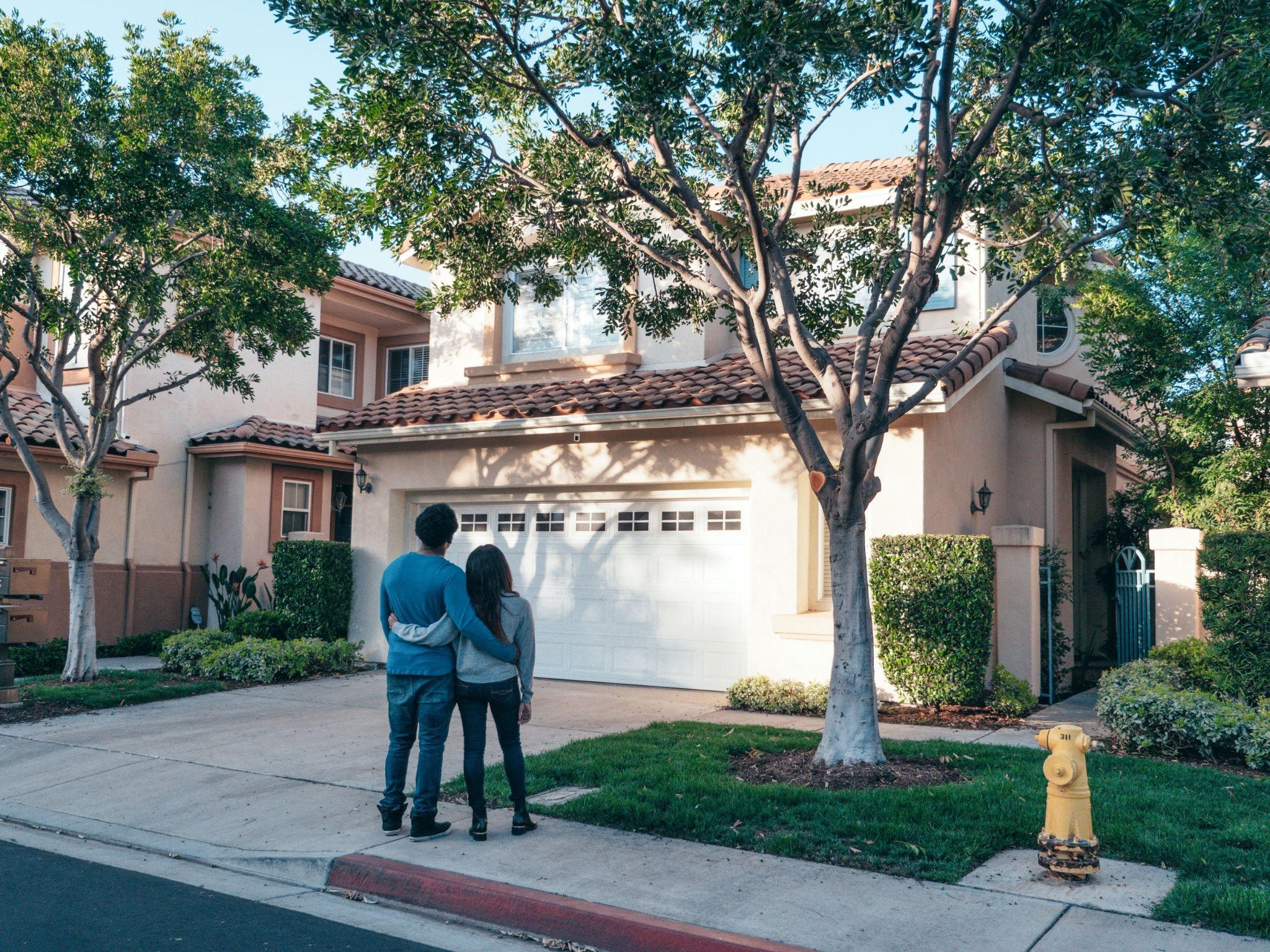Albert Einstein is revered as one of the most intelligent men in history, but one of the most brilliant things he ever said was very straightforward.
And what he said had to do with the subject of experience.
Einstein said that information alone could not be considered or mistaken for knowledge. And that experience was mandatory for one to gain understanding truly. And that a union of experience and knowledge was the only way to gain wisdom.
In other words, Einstein was saying, "buyer, beware!"
And "buyer, beware" is excellent advice that should be offered to anyone buying a new house soon.
New home buyers don't have the experience or understanding of the volatile nature of the real estate market to understand that they may be overpaying for a house.
Mistakes are a necessary part of life. The only way to learn anything useful in life is to learn from mistakes, especially self-inflicted mistakes.
But for first-time home buyers, mistakes and inexperience can be costly.
New homebuyers are now overpaying for a house in record numbers.
Over 36% of the houses sold in February 2021 were sold at prices appreciably above relative market value.
This overpaying for a house statistic is a 15-year record.
Over a third of American homebuyers are overpaying for a house.
Homeowners who rent are paying the most. And first-time homebuyers are the ones more likely to overpay for a house than experienced homebuyers.
The average new homebuyer paid at least $2,900 more than they had to when buying a new house.
As of October 2021, the typical price of a new house was at least $451,000 on average. And the average down payment paid on a new house in mid-2021 was at least $28,000.
While the down payment for a house is a signature calculation relative to the personal finances of a mortgage applicant, $451,000, or $28,000, is a lot of money for anyone to pay.
And yet, over 36% of mortgage applicants are now overpaying for a house.
So, what is going on? What unlearned home buying mistakes are new homebuyers making causing them to overpay for a house in large numbers?
We will examine the issue, show you what mistakes to learn from when overpaying for a house, and avoid doing so.
Let's find out how to get the best deal instead of getting ripped off due to lack of experience.
Are you buying a new house? Don't apply for a mortgage alone. Contact Mares Mortgage today.
Related: A Step by Step Guide To The Mortgage Process
The House Has Been on the Market for a Long Time
There is no general or golden rule for how long it takes to sell a house. However, depending on the local real estate market, the average house for sale was sold within six weeks.
Still, you should pay attention to how long a house has been sitting on the real estate market. The longer a house has been sitting on the real estate market, the more likely it is overpriced.
Have all the other houses for sale nearby already been sold? If one or two houses are left unsold in a neighborhood where many others have already been sold, then it is a dead giveaway that the lingering unsold houses are overpriced.
If a house for sale has been on the market for months or years, the seller may be more amenable to negotiations that benefit the buyer more. Whatever you, don't just pay the asking price – aggressively negotiate.
Compare the Listed Price With Recent Sale Prices
The word "value" is a relative term that has a different meaning to different people, especially homebuyers.
One way to measure if you are overpaying for a house is to compare the house's value in question to similar homes currently on the local market.
A great way to find out if a house is overpriced is to compare its current price against the historical prices of places nearby.
If the house's listing price in question is significantly higher than the historical sale prices of nearby properties, then it is likely you are about to overpay for a home.
Inquire clarification from the seller to justify the price of the house against local historical sale prices.
The Listed House May Have Hidden, and Expensive Problems
Contrary to popular belief, a home inspection of a house for sale is not legally required, so the buyer must request it.
When you buy a home at a public auction, you may not even be allowed to view or inspect the property up close before a sale.
You can request a house showing by appointment or visit via a community open house.
However, if you are restricted from seeing a house up close or restricted to viewing only certain areas during a showing, it is a good sign that the property is overpriced.
One inescapable bane of homeownership is the need to pay for occasional repairs and renovations as needed. Things will wear down and break down in a house. And cumulative damage to a home's exterior will occur over time.
The average home can develop costly problems out of the owner's control. The septic system could fail. Or the plumbing or electrical system could need an entire upgrade. Or the foundation could need extensive repair work.
The interior infrastructure of the home could be compromised by termites, mold, or aggressive rodent infestations.
In other words, a house could be overpriced to compensate the seller against selling the home below value due to unseen maintenance issues.
Request a complete home inspection and appraisal before buying a house with a high price tag. And if your requests are denied, then you know the house is overpriced.
Overpaying for a House for Its Own Sake
Many homeowners aspire to buy houses in exclusive neighborhoods and communities for the sake of status.
If you need to join a homeowners association or be interviewed by local homeowners just to buy a house, then chances are good you will overpay for that house.
Not only that, but you will also definitely have to pay extra fees and dues on top of your overpriced house to become a member of such exclusive communities.
Strategies to Avoid Overpaying for a House
There are a few things that a novice homeowner can do to keep from overpaying for a house.
Research the prices of houses you want to buy using online real estate search tools like Trulia and Zillow.
Make a list of what you need in a house. Search for a house that suits your buying needs dispassionately. Don't develop "dream house syndrome" or obsess on a place you really want, instead of need, to the point that you are willing to pay anything for it.
Make a house buying budget and stick to it. Attempting to buy a house outside of your budget will force you to introspectively ask yourself why you want to pay more for a house when you don't need to.
And finally, find a mortgage financing office that will help you find the house you need on your budget.
If you need help getting a mortgage, contact Mares Mortgage today.









